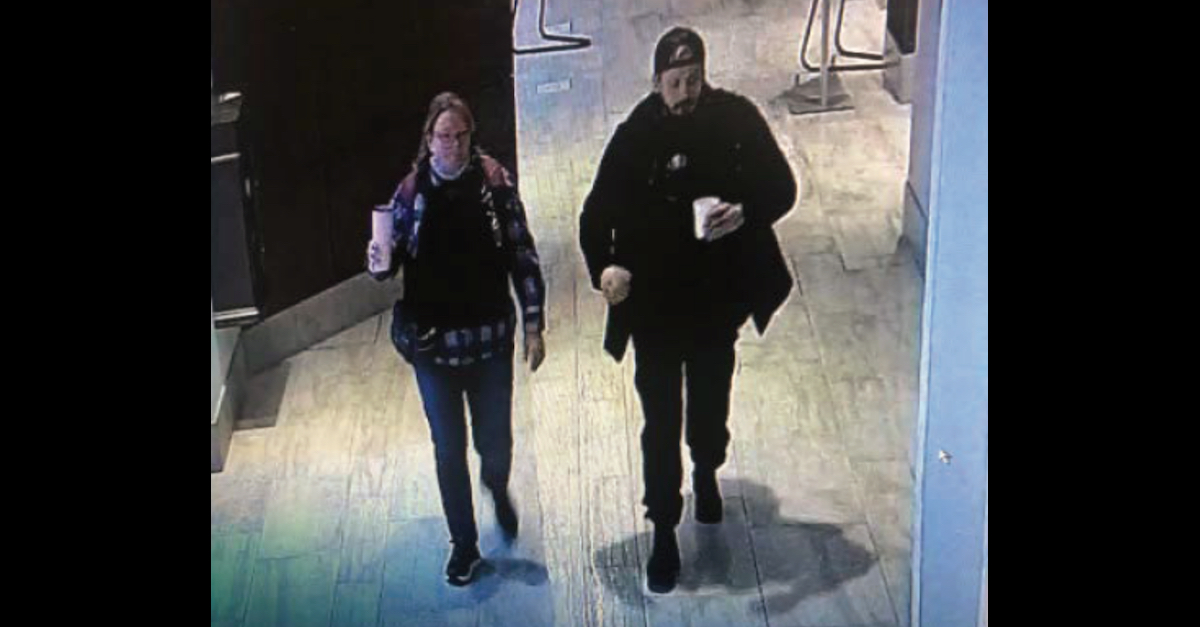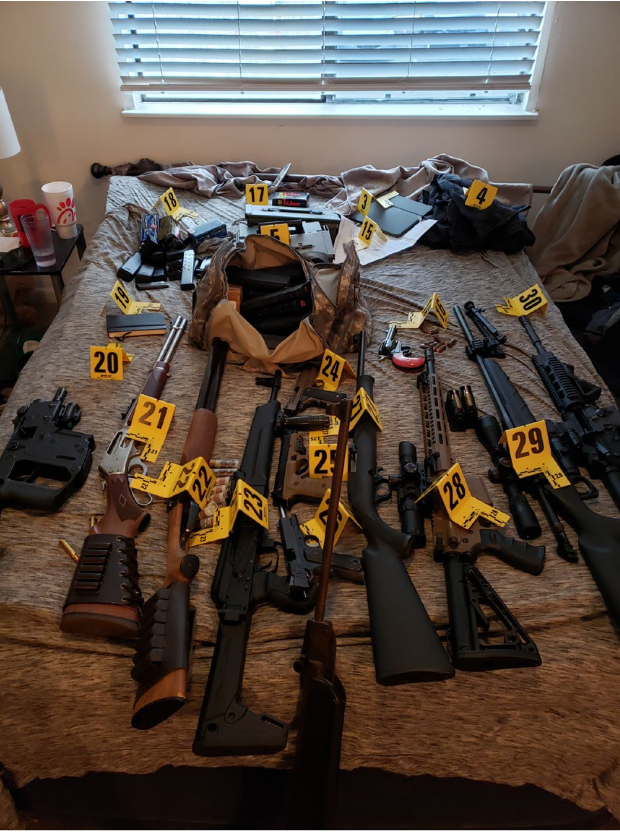
Lisa Marie Eisenhart and Eric Gavelek Munchel
The Capitol rioter known as the “zip-tie guy” for toting tactical restraints in the Senate chamber and his mother were granted new opportunities for pre-trial release on Friday, after the D.C. Circuit ordered a new assessment of their danger to the community.
One of the icons of the Jan. 6th siege, Eric Gavelek Munchel was photographed repeatedly on that day in military gear, carrying plastic handcuffs and hopping around the Senate chamber. Munchel claimed that he harvested the flexicuffs that Capitol police left behind and had no plans to use them, but prosecutors said that he could have used them for taking hostages if he came across any lawmakers. He went into the Capitol on that day with his mother Lisa Marie Eisenhart.
The Tennessee residents appeared slated for pretrial release before their transfer to Washington, D.C.
In January, U.S. Magistrate Judge Jeffery S. Frensley ordered Munchel’s release in a ruling finding keeping him in jail incompatible with the presumption of innocence.
“In our society, liberty is the norm, and detention before trial is an exception,” Frensley declared on Jan. 22, paraphrasing a Supreme Court decision on the Bail Reform Act in the mafia case U.S. v. Solerno.
Until Friday, Frensley’s ruling was an outlier. Judge Beryl A. Howell, the chief of the District of D.C., blocked Frensley’s ruling two days later, before the release order went into effect. Senior Judge Royce C. Lamberth, who came to preside over both of their cases, kept both Munchel and Eisenhart behind bars, rejecting the mother’s motion to be released from “maximum” security conditions that she claimed included solitary confinement.
Citing the Solerno quotation, a three-judge panel of the D.C. Circuit Court of Appeals just gave the mother-and-son another shot at freedom.
“Here, the District Court did not adequately demonstrate that it considered whether Munchel and Eisenhart posed an articulable threat to the community in view of their conduct on January 6, and the particular circumstances of January 6,” Judge Robert L. Wilkins, a Barack Obama appointee, wrote for the majority.
Judge Judith Rogers, a Bill Clinton appointee, concurred with the ruling.
“The District Court based its dangerousness determination on a finding that ‘Munchel’s alleged conduct indicates that he is willing to use force to promote his political ends,’ and that ‘[s]uch conduct poses a clear risk to the community,'” the majority ruling continues. “In making this determination, however, the Court did not explain how it reached that conclusion notwithstanding the countervailing finding that ‘the record contains no evidence indicating that, while inside the Capitol, Munchel or Eisenhart vandalized any property or physically harmed any person,’ […] and the absence of any record evidence that either Munchel or Eisenhart committed any violence on January 6. That Munchel and Eisenhart assaulted no one on January 6; that they did not enter the Capitol by force; and that they vandalized no property are all factors that weigh against a finding that either pose a threat of ‘using force to promote [their] political ends,’ and that the District Court should consider on remand.”
Their ruling stopped short, however, of ordering Munchel and Eisenhart’s release, which Donald Trump-appointed Judge Gregory Katsas would have done outright.
“Putting it all together, because the record strongly suggests that Munchel and Eisenhart would present no safety risk if subjected to strict release conditions, the district court clearly erred in finding that the government had proved its case by clear and convincing evidence,” Katsas wrote in a dissent.
Four days after the riots, the FBI and Joint Terrorism Task Force executed a search warrant upon Munchel’s home in Nashville, and authorities claim that they located the items that he wore during the Capitol siege: the tactical vest with a “Punisher” comic book and Tennessee “thin blue line” patches; a baseball cap depicting a rifle and a flag; and five pairs of white plastic handcuffs. The FBI also found an enormous stash of 15 firearms, including assault rifles, a sniper rifle with a tripod, other rifles, shotguns, and pistols, and hundreds of rounds of ammunition, pictures of which were in court records.

Munchel’s defense counsel did not immediately respond to an email requesting comment.
Read the ruling below:
Have a tip we should know? [email protected]